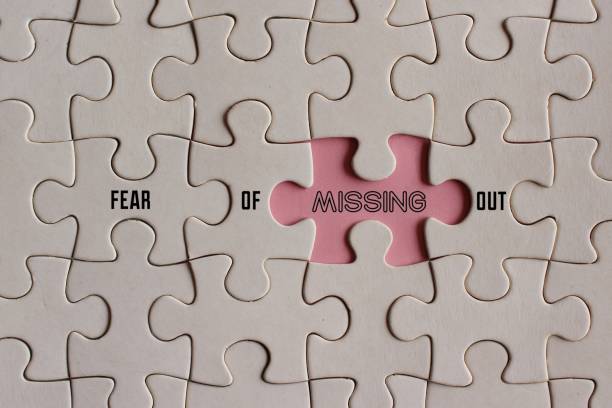This content is for informational and educational purposes only. Always consult a qualified healthcare provider.
📋 Table of Contents
Last Updated on February 4, 2025 by Grace Oluchi
Ever Felt Like You’re Missing Out? You’re Not Alone.
You’re on Instagram, scrolling. Your friends are at a concert. Someone else is on a dream vacation. And here you are—on your couch, watching Netflix, wondering why you’re not there (😩). That sinking feeling? That’s FoMO (Fear of Missing Out).
FoMO isn’t just some buzzword. It’s a real psychological phenomenon that affects millions of people daily. It triggers anxiety, stress, and even depression. But the good news? You can take control of it. Let’s dive deep into why we feel FoMO, its effects, and how to break free.


The funny thing is, FoMO is a very real and very human experience. So please, know that you’re not alone in this struggle. Stay with me so you’ll find out what to do.
What Is FoMO, Really?


FoMO is that nagging worry that you’re missing out on something better—a party, an opportunity, a trend. It’s driven by social comparison and the constant updates we get through social media.
🔹 Ever checked your phone mid-dinner just in case something exciting happened? 🔹 Felt uneasy when friends hung out without you? 🔹 Struggled to focus because you’re thinking about what others might be doing?
Yep, that’s FoMO in action. And while mild FoMO is normal, letting it control your decisions? That’s where problems start.
The Science Behind FoMO 🧠
FoMO is more than just emotions—it’s wired into our brains. Research shows that social interactions trigger the dopamine reward system, the same system linked to addiction.
📌 Study Alert: A 2023 study from the Journal of Behavioral Neuroscience found that FoMO increases cortisol (stress hormone) levels, making it harder to focus and feel content.
🔹 Dopamine Loops: Social media apps are designed to keep us hooked. Every notification triggers a dopamine release, reinforcing the urge to keep checking. 🔹 Survival Instinct: Our ancestors relied on social belonging to survive. Feeling “left out” signaled danger. Today? That instinct makes us panic when we miss a group chat. 🔹 Comparison Culture: Seeing only the “highlights” of others’ lives skews reality, making our own lives seem dull in comparison.
Symptoms of FoMO (Are You Experiencing It?)


✔️ You constantly check social media, even when it stresses you out. ✔️ You feel jealous when others post about their experiences. ✔️ You regret your choices, wondering if there was a better option. ✔️ You say yes to events, not because you want to, but because you fear missing out. ✔️ You struggle to focus on your own life, always looking at what others are doing.
🔹 Did you nod along to any of these? Then yes, you might have FoMO.
FoMO vs. JOMO (The Joy of Missing Out)
Ever heard of JOMO (Joy of Missing Out)? It’s the opposite of FoMO—finding peace in being present and not constantly chasing what others are doing.
✅ FoMO: “I have to go, or I’ll miss out!” ✅ JOMO: “I’m happy where I am, doing what I love.”
Shifting from FoMO to JOMO isn’t about avoiding social events. It’s about choosing what truly makes you happy—without guilt.
Who Feels FoMO the Most?
FoMO doesn’t discriminate, but some groups experience it more intensely:
✔️ Teens & Young Adults: They’re always online, constantly comparing lives. ✔️ High Social Media Users: The more time spent scrolling, the worse FoMO gets. ✔️ People with Low Self-Esteem: If you feel insecure, FoMO can hit harder. ✔️ Busy Professionals: Seeing colleagues get promotions, invitations, or recognition can spark FoMO in the workplace.
How To Overcome FoMO & Feel Happier
1️⃣ Reframe Your Perspective
Instead of thinking, “I’m missing out,” remind yourself: “I’m choosing what’s best for me.”
2️⃣ Cut Down on Social Media
📉 Fact: A 2024 Digital Well-Being Report found that people who took a 7-day social media break reported a 40% drop in FoMO-related anxiety. Try it.
3️⃣ Practice Gratitude
Instead of focusing on what you don’t have, list three things you love about your life every morning.
4️⃣ Limit Social Media Triggers
📌 Mute notifications 📌 Unfollow accounts that make you feel inadequate 📌 Schedule “social media detox” days
5️⃣ Live in the Moment
Start small: Put your phone away at dinner. Be fully present with friends. The more you focus on your own joy, the less you worry about what others are doing.


Final Thoughts: You’re Not Missing Out, You’re Living Differently
🚀 FoMO is an illusion. What you see online is curated, not reality. Your life is happening right now, and it’s yours to enjoy.
✔️ Choose JOMO over FoMO. ✔️ Social media isn’t real life. ✔️ Being present = real happiness. ✔️ You’re not alone in feeling this way.
🔗 Further Reading & Resources:
- Harvard Study on Social Media & Mental Health
- Digital Detox Challenge: A Step-by-Step Guide
- FoMO vs. JOMO: Finding Peace in an Overconnected World
Ready to Break Free from FoMO? Try This:
📌 Turn off notifications for 24 hours. 📌 Delete social media apps for a weekend. 📌 Say no to plans without guilt. 📌 Focus on what makes YOU happy.
FoMO doesn’t have to control you. Your life is just as exciting as you make it. 💙

